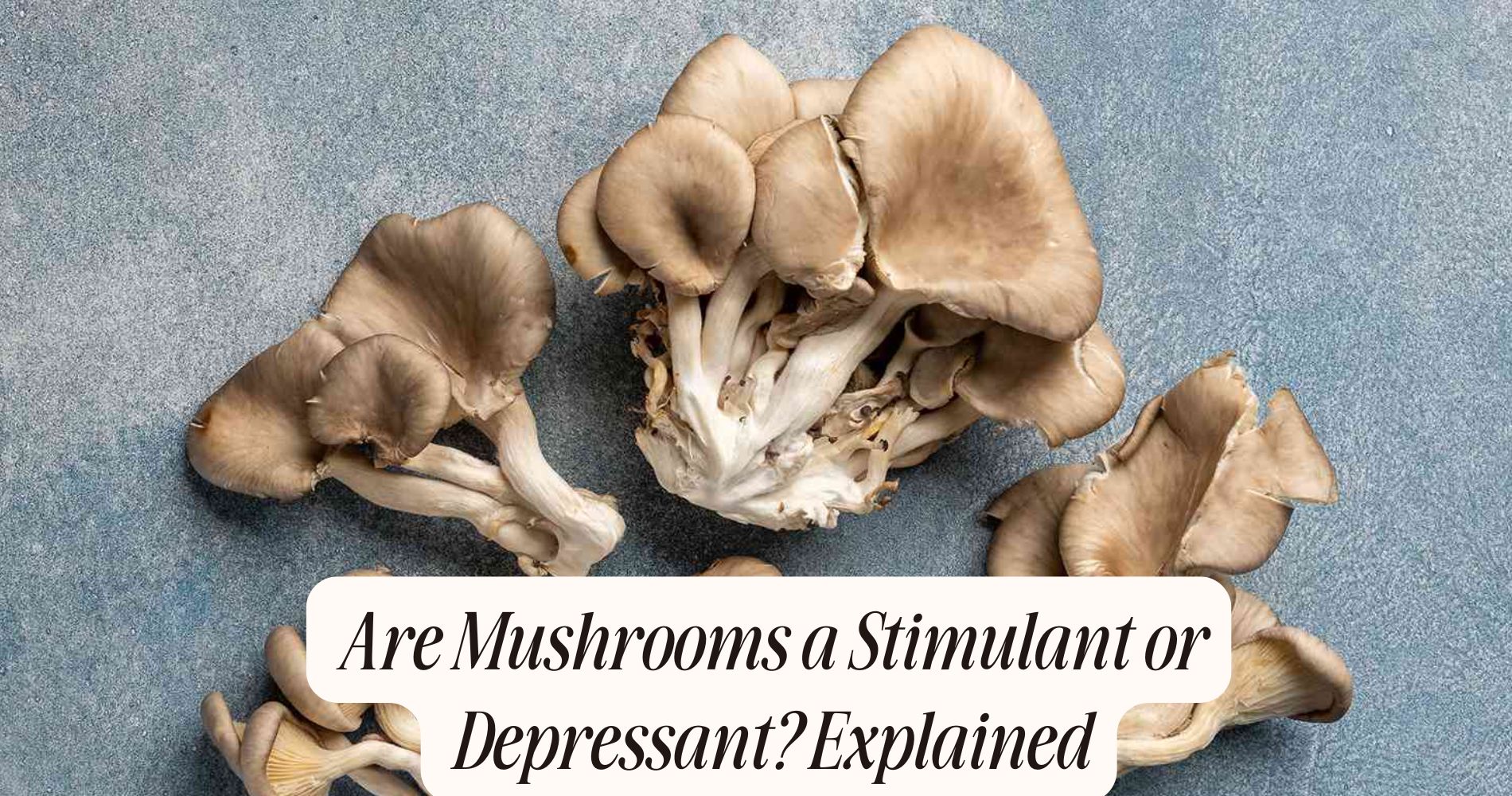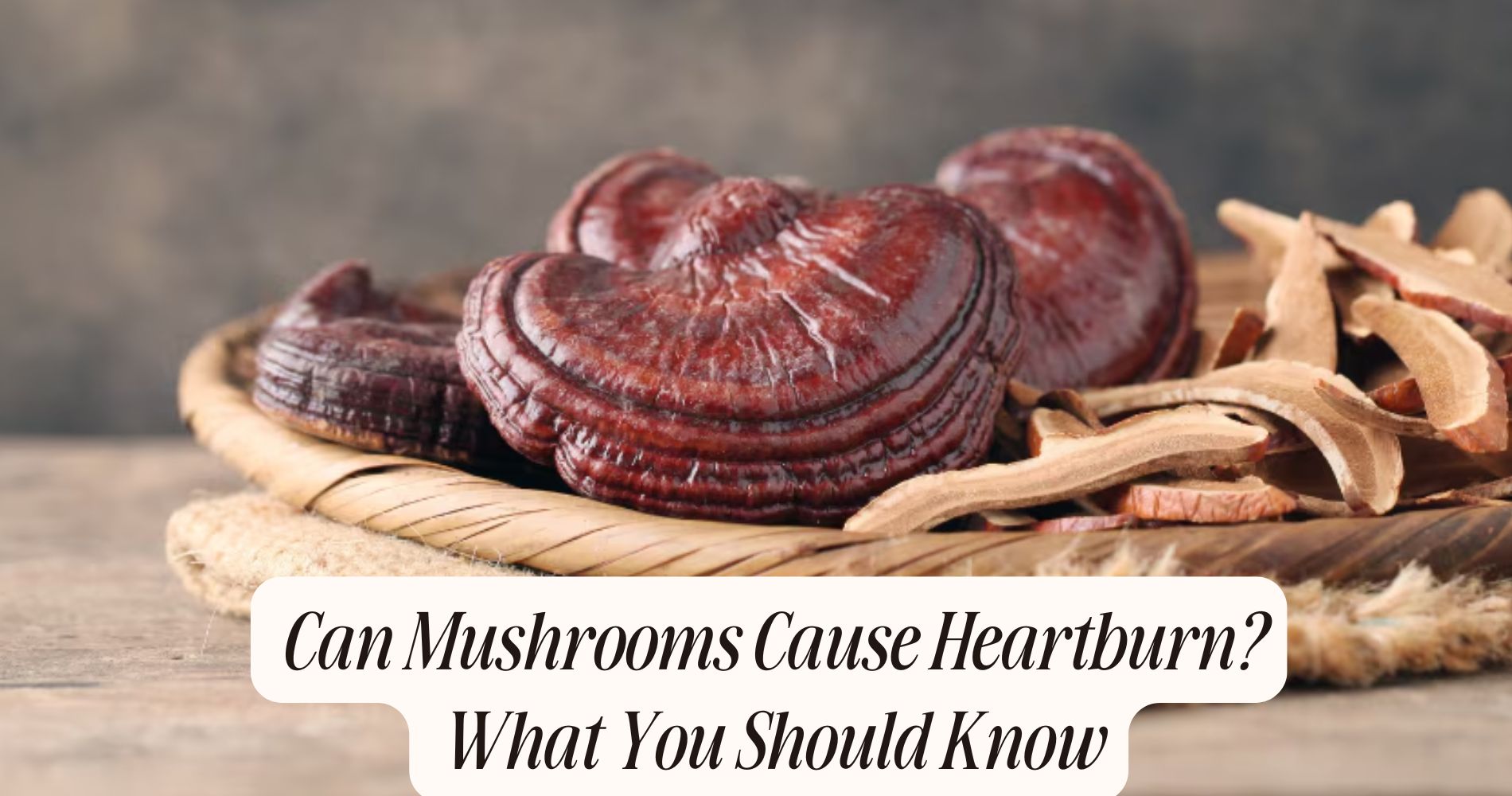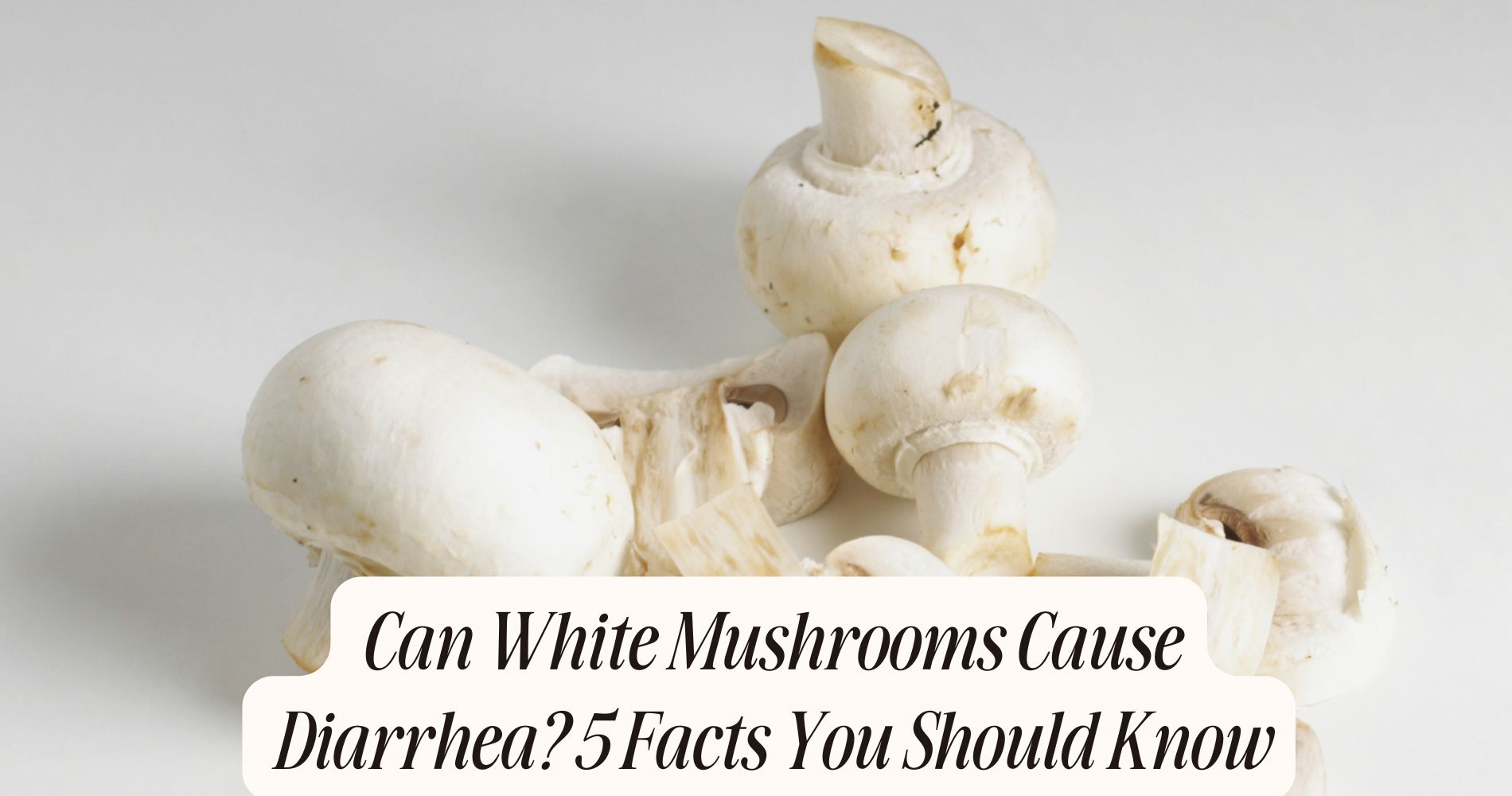
Are Mushrooms a Stimulant or Depressant? Explained
Are mushrooms a stimulant or depressant? Mushrooms, particularly those with psilocybin, can act as both stimulants and depressants. The effects you experience often depend on factors like dosage, mushroom species, and your individual brain chemistry. Psilocybin impacts serotonin receptors, which can elevate your mood and creativity while also influencing feelings of connectedness. In some contexts, you might feel energized and euphoric, while in others, a calming effect could prevail. This duality makes mushrooms unique in their psychoactive properties. If you're curious about how various factors shape these experiences, there's plenty more to uncover.
Understanding Psychoactive Mushrooms
Exploring psychoactive mushrooms offers a fascinating glimpse into the diverse effects these fungi can have on the mind and body. With a rich mushroom history, these organisms have long held cultural significance in various societies, often used in spiritual rituals and healing practices.
You might be surprised to learn about their medicinal uses, which include potential treatments for anxiety and depression.
Psychedelic experiences are central to understanding these mushrooms, as they can alter perception and consciousness. However, you need to be aware of the legal status surrounding them, which varies greatly by location.
If you're interested in cultivating your own, familiarizing yourself with safe cultivation methods is essential, as it guarantees you're growing the right species.
When foraging, always prioritize safety; proper species identification is critical to avoid toxic varieties. Additionally, consider the environmental impact of your activities, as overharvesting can harm ecosystems.
On the nutritional side, many psychoactive mushrooms offer health benefits, contributing to overall well-being.
Types of Psychoactive Compounds
Psychoactive mushrooms contain various compounds that greatly influence their effects on the mind and body. When exploring these fungi, you'll discover a rich psychoactive diversity.
The primary compounds found in these mushrooms can be classified into two main categories: hallucinogens and non-hallucinogens.
Hallucinogens, such as psilocybin and psilocin, are the most well-known psychoactive compounds in mushrooms. These compounds interact with serotonin receptors in your brain, leading to altered perceptions, mood changes, and vivid hallucinations.

On the other hand, non-hallucinogenic compounds, like baeocystin and norbaeocystin, mightn't produce the same intense experiences but can still contribute to the overall effects of the mushrooms.
Understanding this compound classification is essential for anyone looking to explore the wide-ranging experiences that psychoactive mushrooms offer. Each compound can affect you differently, and their combinations can lead to unique experiences.
As you investigate deeper into the world of mushrooms, you'll appreciate how their diverse compounds create a spectrum of effects, making each encounter a potentially new adventure.
How Mushrooms Affect Neurotransmitters
When you consume mushrooms, you'll notice their powerful effects on neurotransmitters, particularly serotonin.
These compounds interact with serotonin receptors, leading to changes in mood and perception.
Additionally, the release of dopamine can create feelings of pleasure, altering your emotional state in various ways.
Serotonin Receptor Interaction
Mushrooms, particularly those containing psilocybin, have a profound effect on serotonin receptors in the brain. When you consume these mushrooms, psilocybin converts to psilocin, which then exhibits a high receptor affinity for serotonin receptors, especially the 5-HT2A subtype. This strong interaction leads to significant serotonin modulation, altering your mood, perception, and cognition.
As psilocin binds to these receptors, it mimics serotonin's effects, enhancing the signaling pathways that influence your emotional state. You might experience heightened sensory perceptions, altered thought processes, and a sense of connectedness. This interaction is critical in understanding why many people report feelings of euphoria or transcendence during their experiences with psilocybin mushrooms.
However, the extent of these effects can vary depending on the dosage and individual neurochemistry. While some may find profound insights and emotional healing, others might encounter anxiety or discomfort.
Dopamine Release Effects
While psilocybin primarily influences serotonin receptors, it also has notable effects on dopamine release, another key neurotransmitter. When you consume mushrooms containing psilocybin, you might experience changes in the dopamine pathways in your brain. These pathways play a significant role in your brain's reward system, which is responsible for feelings of pleasure and motivation.
As the psilocybin metabolizes in your body, it can enhance dopamine activity, leading to heightened feelings of enjoyment and satisfaction. This increase in dopamine can amplify your experiences, making activities feel more rewarding. You might find that things you usually enjoy become even more appealing while under the influence of mushrooms.
Moreover, this boost in dopamine release can also influence your mood and perceptions, creating a unique blend of experiences.
It's important to understand that while mushrooms can stimulate dopamine release, the overall effect on your brain's chemistry can vary based on individual differences, dosage, and set and setting.
Ultimately, mushrooms can affect your brain's reward system, providing a fascinating interplay between enhanced pleasure and altered consciousness.
Mood Alteration Mechanisms
Throughout the duration of a psilocybin experience, your brain undergoes considerable changes in neurotransmitter activity, particularly affecting mood. Psilocybin primarily interacts with serotonin receptors, particularly the 5-HT2A receptor. This interaction leads to enhanced serotonin signaling, which can result in mood enhancement and feelings of euphoria. As serotonin levels rise, you may notice a shift in your emotional state, making you more open and connected to your surroundings.
Moreover, psilocybin can promote psychological resilience. By altering your perception and encouraging introspection, these mushrooms help you confront underlying issues and traumas. This process can lead to lasting changes in how you respond to stress and adversity, ultimately improving your mental flexibility.

The experience may also encourage neural connectivity, allowing different regions of your brain to communicate more effectively. This heightened connectivity can contribute to novel insights, creativity, and a sense of unity with the world around you.
To conclude, psilocybin mushrooms can considerably alter your mood through their interaction with neurotransmitters, enhancing your emotional experience while fostering psychological resilience in the long run.
Stimulant vs. Depressant Effects
When considering the effects of mushrooms, you'll find a range of types that can influence your mood in different ways.
Some may act as stimulants, boosting your energy and alertness, while others can have a calming, depressant effect.
Understanding how these interactions with neurotransmitters occur can help you make informed choices.
Types of Mushrooms
Mushrooms come in various types, each exhibiting unique effects that can range from stimulating to depressant. You'll find culinary varieties, like shiitake and portobello, celebrated for their flavor and health benefits. These mushrooms often have medicinal uses, promoting wellness and enhancing culinary dishes.
In contrast, some species, such as psilocybin mushrooms, may elicit stimulating effects, often used in cultural rituals throughout history.
However, not all mushrooms are safe. Toxic species exist and can have severe environmental impacts, affecting local ecosystems. When foraging, it's vital to employ techniques that guarantee the mushrooms you gather are safe to eat. Understanding habitat preferences of different types can help you avoid the toxic varieties while maximizing your foraging success.
Additionally, mushrooms hold significant cultural importance across various societies, often symbolizing life, death, and transformation. By exploring the diverse types of mushrooms, you can appreciate their complex roles in both nature and human culture.
With this knowledge, you can make informed choices about which mushrooms to incorporate into your life, whether for culinary enjoyment, medicinal benefits, or simply understanding their place in the environment.
Effects on Mood
Understanding the various types of mushrooms sets the stage for exploring their effects on mood, which can vary widely depending on the species. Some mushrooms, particularly those containing psilocybin, may promote mood enhancement and a sense of euphoria. Users often report feelings of connectedness and improved emotional stability, making these mushrooms popular in therapeutic settings for anxiety and depression.
Conversely, certain mushrooms can have depressant effects, leading to a sense of calm or sedation. While this may provide temporary relief, it can also result in lethargy or a flat emotional state if consumed in excess. The key lies in dosage and individual response; what might enhance mood for one person could lead to a different experience for another.
When considering mushrooms for mood effects, it's essential to recognize that the context in which you consume them can also play a significant role. Your mindset, environment, and even the company you keep can influence how these substances affect your mood.
Ultimately, understanding these varying effects helps you make informed choices regarding your mental well-being and emotional health.
Neurotransmitter Interaction
The way mushrooms interact with neurotransmitters plays an essential role in determining whether they produce stimulant or depressant effects.
Mushroom chemistry involves various compounds, like psilocybin and psilocin, which greatly influence your brain's neuropharmacological effects. When you consume mushrooms, psilocybin converts to psilocin, mimicking serotonin, a key neurotransmitter that regulates mood, cognition, and perception.
This mimicry can lead to altered states of consciousness, which some might perceive as stimulating. On the other hand, these interactions can also dampen certain neural pathways, producing a depressant-like effect. Depending on the dosage and individual response, mushrooms can create a unique balance between stimulation and sedation.

For some, the experience can feel invigorating and euphoric, while for others, it might lead to relaxation and introspection.
The diversity in mushroom chemistry means that different species can have varying impacts, so your experience may differ based on what you consume. Understanding how these compounds interact with neurotransmitters can help you better navigate the potential effects of mushrooms, whether you're seeking stimulation or relaxation.
Popular Mushroom Varieties
When exploring popular mushroom varieties, you'll discover a diverse range of species that cater to different culinary and medicinal needs. Edible varieties like shiitake, portobello, and oyster mushrooms are common in kitchens worldwide, offering rich flavors and nutritional benefits.
These mushrooms not only enhance dishes but are also celebrated for their medicinal uses, such as boosting immunity and reducing inflammation.
Cultural significance plays a role in mushroom consumption, as many societies have traditional recipes and practices centered around them. Sustainable harvesting is vital to minimize environmental impact; you should always follow foraging tips that guarantee you're collecting mushrooms responsibly, allowing ecosystems to thrive.
Incorporating mushrooms into your diet can provide numerous nutritional benefits, including vitamins, minerals, and antioxidants. Whether you're sautéing them in a stir-fry or using them in soups, their culinary applications are endless.
Implications for Mental Health
Although mushrooms are often celebrated for their culinary and nutritional benefits, their implications for mental health are gaining attention. You might be surprised to learn that certain types of mushrooms, particularly those containing psilocybin, are being explored for their potential in promoting mental wellness.
Research suggests that mushroom therapy could help alleviate symptoms of anxiety, depression, and PTSD, proving to be a valuable alternative to traditional treatments.
When you consider the therapeutic potential of mushrooms, it's crucial to understand how they can affect your brain's neurochemistry. Psilocybin interacts with serotonin receptors, which might lead to enhanced mood and emotional well-being. This connection has prompted many to explore microdosing as a way to achieve subtle improvements in mental health without the intense experiences associated with full doses.

However, you're encouraged to approach this topic with caution. While the results are promising, ongoing research is vital to fully understand the long-term effects and appropriate dosages.
Always consult a healthcare professional before considering mushroom therapy, ensuring that your mental wellness journey is safe and informed.
Balanced Energy and Calm with SUPER MUSHROOM GUMMIES
Curious about "Are mushrooms a stimulant or depressant?" Well Gummies' SUPER MUSHROOM GUMMIES offer the best of both worlds. Packed with 10 functional mushroom types, these vegan gummies provide calming energy, sharper focus, and immune support without extreme highs or lows. With a delicious fresh wild berry flavor, they’re easy to incorporate into your daily routine, delivering natural wellness benefits free from jitters or crashes. Experience balanced energy and mental clarity with the convenience of SUPER MUSHROOM GUMMIES!
Frequently Asked Questions
Can Mushrooms Be Used for Recreational Purposes?
Yes, you can use certain mushroom varieties for recreational purposes. Many people seek unique recreational experiences with these mushrooms, often leading to altered perceptions and heightened sensations, which can contribute to the enjoyment of social gatherings.
Are There Any Side Effects of Consuming Mushrooms?
When you consume mushrooms, you might experience psychological effects like anxiety or hallucinations. Additionally, some mushrooms can cause mushroom toxicity, leading to nausea, vomiting, or even more severe health issues if consumed improperly. Stay informed!
How Do Mushrooms Compare to Other Psychoactive Substances?
When you compare mushrooms to other psychoactive substances, you'll notice their unique mushroom effects stem from distinct chemical compositions. They often promote altered perceptions and introspection, unlike stimulants or depressants that typically affect energy levels or sedation.
Are All Mushrooms Safe to Consume?
Not all mushrooms are safe to consume. While many offer nutritional benefits and delicious culinary uses, some can be toxic or hallucinogenic. It's crucial to identify mushrooms properly before consuming them for safety.
What Is the Legal Status of Psychoactive Mushrooms?
The legal status of psychoactive mushrooms varies by jurisdiction. You'll find different mushroom regulations and legal implications depending on where you are, so always check local laws before considering their use or possession.
Conclusion
In summary, mushrooms can offer a unique experience that varies depending on the type and compounds they contain. While some varieties may stimulate your senses and enhance perception, others can lead to a more calming, introspective state. Understanding how these psychoactive effects influence your brain's neurotransmitters is essential for steering their impact on your mental health. Ultimately, whether you find them stimulating or depressant largely depends on the specific mushrooms you choose and your personal experiences with them.




